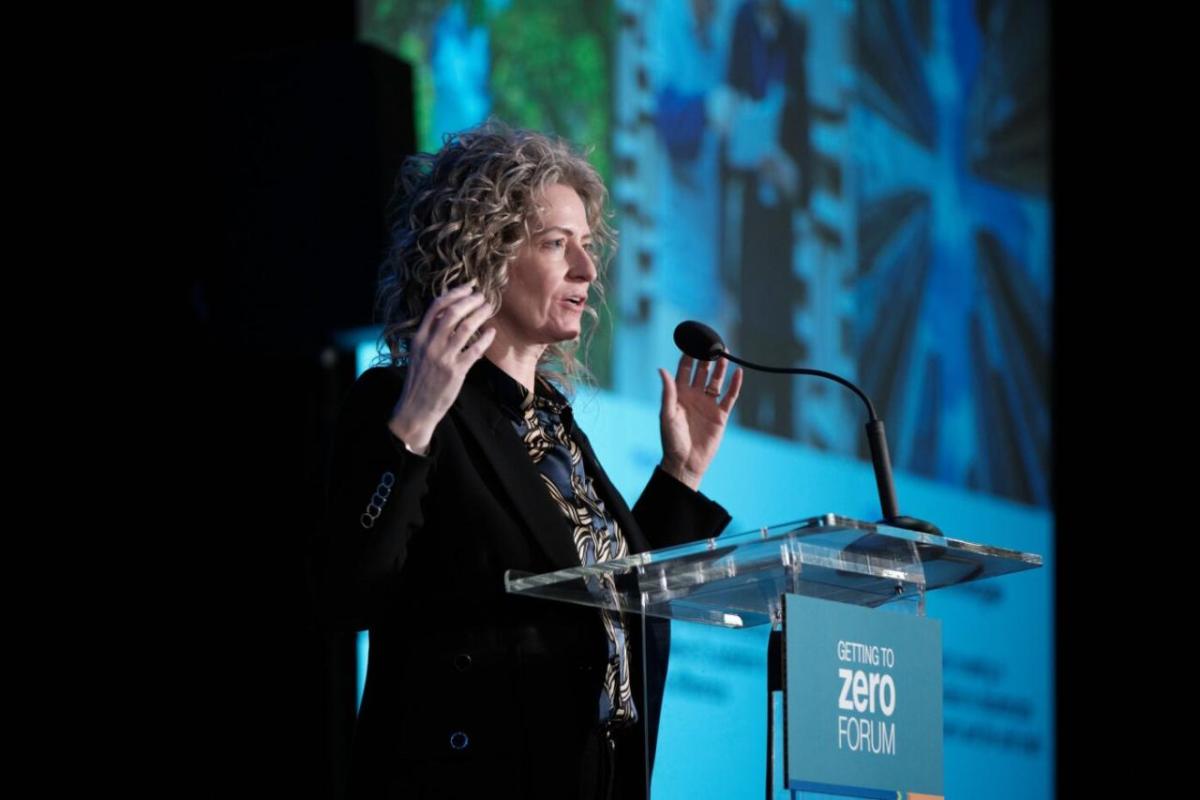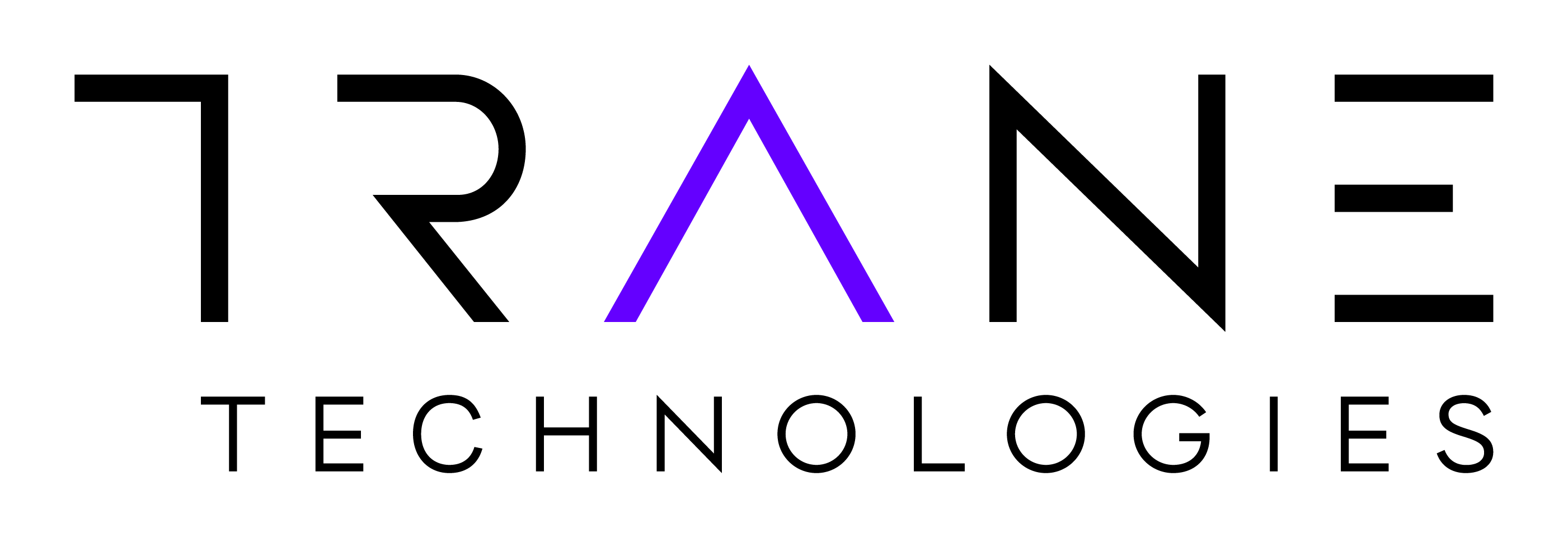Building a Movement
The technology exists today to decarbonize the built environment. How will we get to net-zero? Together.

This blog is authored by Holly Paeper, President, Commercial HVAC Americas, Trane Technologies.
Earlier this month, I had the opportunity to participate in the Getting to Zero Forum hosted by our partners, the New Buildings Institute, a mission-driven nonprofit organization working to advance scalable and practical approaches that equitably eliminate emissions from the built environment. Leaders from across the building sector—owners, academia, engineers, community organizations—came together to talk about building performance standards, embodied carbon and equitable cooling policy. It was inspiring to be with so many people committed to figuring out how to truly remove carbon from the built environment, and I shared how we are leading by example in our approach at Trane Technologies—through technology, people and partnerships.
Technology: Relentlessly investing in sustainable innovation
Today, the urgent need for clean technologies in addressing climate change is increasingly clear. And so is our purpose to boldly challenge what’s possible for a sustainable world. For more than a decade, sustainability has been our strategy.
We view climate change not as a problem to be managed, but as a disruptive platform for innovation. We are relentlessly investing in sustainable innovation to transform the way the world heats and cools buildings and transports refrigerated goods—dramatically reducing energy use and carbon emissions.
In 2022 we became the first company in our industry—and one of the first companies in the world—to have our net-zero targets validated by the Science Based Targets initiative, following previous approval of our near-term 2030 targets. Our net-zero roadmap, introduced in 2023, outlines our decarbonization transition plan to achieve net-zero across our entire value chain—Scopes 1, 2 and 3—by 2050. You can learn more about it in this article from our leader of sustainability, Scott Tew.
We are reducing customers’ carbon emissions through electrification, heat pump technology, on-site renewables refrigerant transition management, connected controls and more.
- For example, we see a path to net-zero emission systems through on-site renewables and thermal batteries, such as thermal energy storage, which works like an HVAC “battery” for buildings. Ice or chilled water systems capture and recover thermal energy and then discharge it when the building needs it.
- A connected, holistic approach to buildings is also vital for driving positive environmental outcomes, and leveraging advanced, digital technology is key. Our connected solutions are providing our customers with real-time data and insights, helping improve their building performance, optimizing energy use, decreasing greenhouse gas emissions and minimizing costs.
People: Our culture of impact
We believe investing in people is the most powerful way to innovate for a sustainable future. A diverse workforce is an essential catalyst for growth. We need people to help us develop the innovative technologies to decarbonize, and we need people to manufacture, install and service them, too.
Cultivating a diverse and inclusive workforce requires investing in innovating ways to recruit, develop and retain talent for the future.
- For example, in 2023 we launched the Trane Technician Apprenticeship Program to address the skilled labor gap and build a diverse service technician workforce. Nationally registered through the U.S. Department of Labor, the TAP is a robust, nationwide, four-year paid program designed to recruit and train aspiring HVAC technicians, regardless of experience or education. For our most recent TAP cohort, we received more than 2,000 applicants—more than 12x the number of applicants for experienced technician openings.
- Also in 2023, we repositioned our policy of tuition reimbursement to tuition advancement, to help employees access opportunities for learning by reducing the upfront financial burden.
We make real progress on our sustainability commitments because everyone contributes. We believe every job is a sustainability job, every role an opportunity for impact.
Partnerships: Together, our impact grows by magnitudes
Our culture of impact expands beyond the company through our partnerships. From our customers to environmental organizations and community partners, we are leaders in an ecosystem that champions climate action and innovation. The Getting to Zero Forum was a wonderful reminder of the power of this community.
Conclusion
What’s holding us back? Lack of clarity about what’s possible. And the ROI. We have heating and cooling systems today that are 70 percent more efficient than just seven years ago. The systems often pay for themselves within only two to three years due to greater energy efficiency and operational savings.
What’s possible is a net-zero built environment. What will get us there is collaboration.
The built environment is as complex an ecosystem as we will find in the natural world we are trying to protect. From HVAC to owners to engineers and operators, we work together every day to provide the environments for our communities to thrive: for children to learn, for patients to be treated, for businesses to serve customers. We can work together to do this too—to reach net-zero together.

